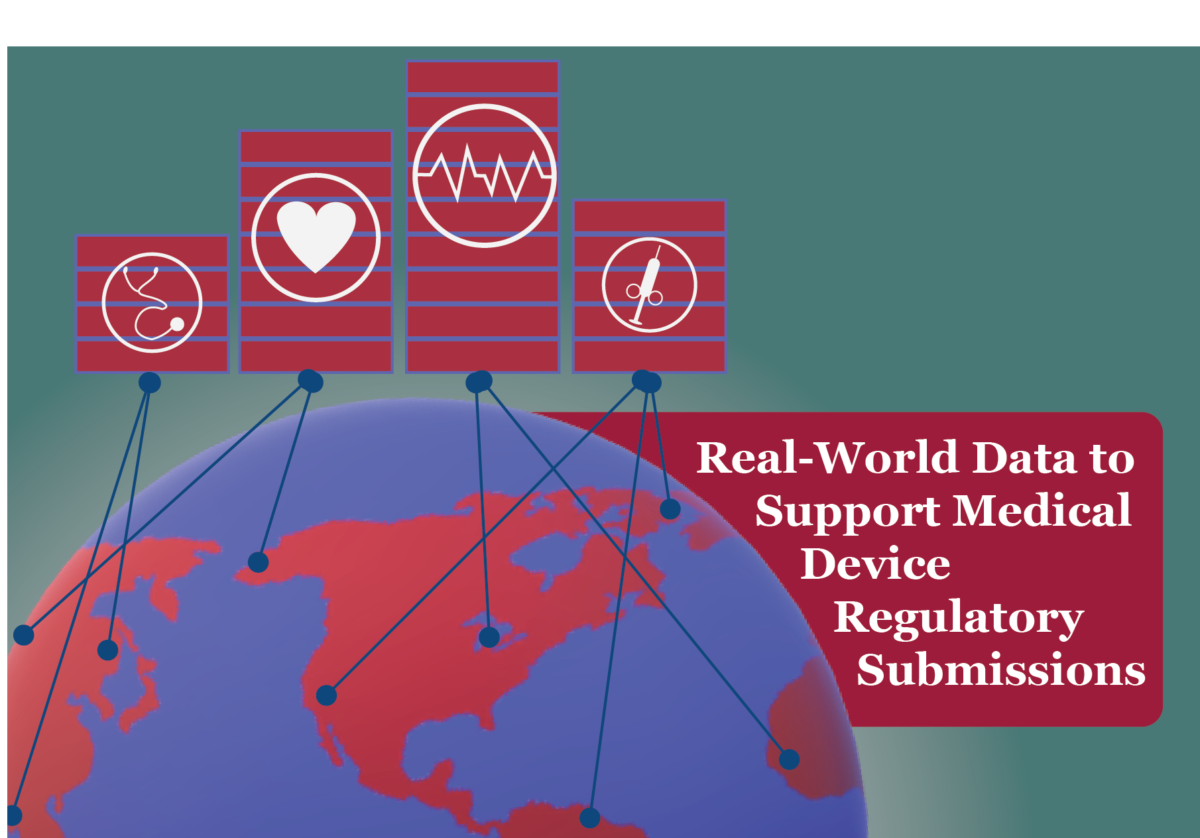Randomized controlled trials have long been the gold standard for collecting clinical data on investigational medical devices. However, with the increasing costs of conducting trials, difficulty in tracking long-term outcomes, and sometimes mismatch of clinical trial data with practical experience, medical device manufacturers are interested in leveraging data collected outside of standard clinical research settings for informing regulatory decisions. And there is plenty of this type of data.
Real-World Data (RWD) are data collected from multiple sources outside of a typical clinical trial. They can constitute the health status or records of patients from electronic health records or data collected from mobile health applications or wearables. RWD may also be collected from insurance claims (e.g., Medicare), product and disease registries, and patient-generated data (e.g., surveys). These data sources can be rich in information, such as how devices are used in practice and whether they are used for their cleared or approved indications. Or what the long-term outcomes are for a device for populations that were not adequately represented in a clinical trial. However, there are limitations to this data. They are typically collected for specific purposes and using different methods, such that these data are not systematically characterized, aggregated, or analyzed. Additionally, they may be incomplete and there may be unknown or undocumented confounders in the data, so inaccurate inferences may be made, and analysis can be difficult.
There is interest, but cautiousness in using RWD to make regulatory decisions. The insights gained from RWD is indisputably valuable, but FDA relies upon valid scientific evidence in order to determine whether there is reasonable assurance that a device is safe and effective. FDA has suggested that RWD can inform a particular regulatory decision, depending on if the data is of sufficient quality. The quality relies on the relevance and reliability of RWD, as outlined in FDA’s guidance, “Use of Real-World Evidence to Support Regulatory Decision-Making for Medical Devices.”
FDA has been mandated to implement a program to evaluate the use of RWD and Real-World Evidence (RWE; clinical evidence regarding usage and potential risk-benefit derived from RWD) through the 21st Century Cures Act. Although the framework was conceptualized for supporting regulatory decisions and post-approval study requirements for drugs and biological products under section 351 of the PHS Act, it parallels use of RWD and RWE for medical devices. In 2018, FDA allocated funding to help establish the National Evaluation System for health Technology Coordinating Center (NESTcc) and build out pilot studies. NEST is a voluntary network of collaborators who are able to consolidate RWE from clinical registries, electronic health records, medical billing claims, patient-mediated data, and other sources. There are currently 8 test cases that will evaluate the use of RWE in pre-market submissions, labeling changes, and post-market surveillance in certain device areas. The test cases will be performed through selected industry partners. The hope is that NEST can deliver timely safety information and provide low-cost and high-quality RWE to support regulatory decisions.
The interest in using RWD will certainly continue to grow and how it grows to support regulatory decisions is highly anticipated by industry.
Need help with your regulatory submissions? Please call us at 248-987-4497 or email us at info@emmainternational.com.





